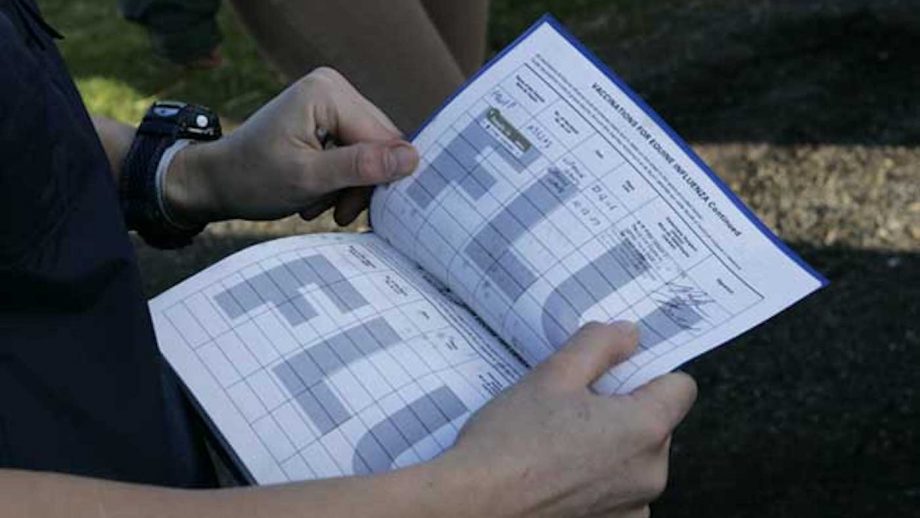Vaccination and biosecurity remain crucial in controlling equine flu outbreaks across the UK, the Animal Health Trust (AHT) has reminded owners.
There have now been 61 confirmed cases since the start of the year, with the outbreak following the expected pattern.
“We are certainly hopeful that events raising their game and requiring vaccination will have had a positive effect on reducing transmission,” an AHT spokesman told H&H.
“But the continued testing and positives does suggest that there is still a problem with a sufficiently large proportion of susceptible non-vaccinated horses and movement of them to allow equine flu to continue to circulate.”
Many venues and national governing bodies are continuing to insist on horses’ having received a flu vaccination booster within six months of arrival at an event.
In January there were five confirmed cases of equine flu, with four involving vaccinated horses — more than double the total number of cases in both vaccinated and unvaccinated horses in the whole of 2018.
“February was busier with 35 outbreaks confirmed and with nine [of those] involving vaccinated horses, there was heightened awareness from the headlines around racing,” added the AHT spokesman.
“This was reflected in the amount of testing undertaken; this was more than all of the most recent year where we saw increased equine flu activity, 2014.
“March has quietened down, although we have still confirmed 21 positive outbreaks so far in March making it 61 altogether and we may see several outbreaks confirmed in a day, for example three were confirmed on Wednesday.
“However, this is a pattern that we might expect. The outbreak will almost certainly continue to grumble on and we expect to continue to make positive diagnoses, especially in clinically sicker non-vaccinated animals.”
Article continues below…
You might also be interested in:

Equine flu: what all owners need to know to protect their horses

British Eventing brings in six-month flu vaccination rule
All horses arriving at affiliated events from 1 March must have had a flu booster vaccination within six months or

Subscribe to Horse & Hound magazine today – and enjoy unlimited website access all year round
The spokesman warned it is not always accurate to compare numbers of confirmed outbreaks as a measure of the extent of the spread of the virus. This is because increased testing can mean an increase in diagnoses.
“But the 61 confirmed outbreaks before the end of March makes this the largest detected in several decades, even accepting for the inevitable heightened awareness around the disease increasing the numbers submitted for testing,” he added.
For all the latest news analysis, competition reports, interviews, features and much more, don’t miss Horse & Hound magazine, on sale every Thursday




